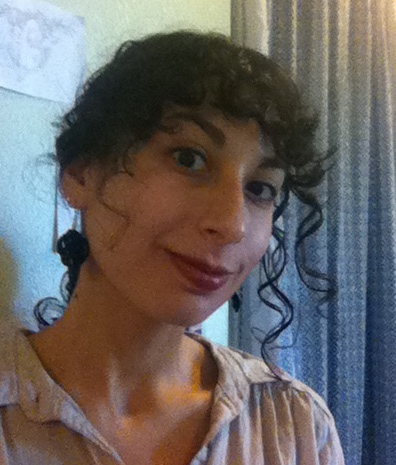Progress comes from asking good questions. We ask questions of ourselves to determine the proper direction for our projects, and while we problem solve. We ask questions of others to understand the reception of our projects and gain valuable information from our audience. And we ask questions from our advisers to help us get past hurdles and work though anything that might come up. Asking questions is a powerful tool, and good questions can lead us to better answers that push us further toward our goals.
Why Asking Questions is Different from Talking About What You know
Often our business and work training teach us to talk our way into and out of things. We stride confidently using our intentions and the strength of our knowledge. We learn to easily explain the type of business model we use, our marketing strategies, and target markets. This technique has its time and place in communication. However, when it comes to planning, research, and development, this can actually make for a sloppy approach, allowing you to miss key holes or problems in your strategy.
Always talking about what you know means less time spent examining what you don’t. Gaps of lapses in knowledge are like any other problem to solve, meaning, if you can’t identify the problem, you won’t know how to start your solution. That means that you are likely to cover the same ground over and over again. This process leaves you vulnerable to the questions you haven’t asked yourself.
Often, these vulnerabilities require further research, deeper consideration, and dedicated time to patch up. They do also take a resource that we don’t often think about. This is humility and the ability to set aside your ego to learn something that you don’t already know. Asking questions allows us to engage with topics that we don’t yet understand. To learn, expand, and progress, we are often required to approach things as beginners, first learning the ropes. This means starting with the basics, listening, and absorbing, as opposed to talking.
Asking Questions Socially
Asking questions socially implies that you are interested in hearing an answer. This, however, can conflict with an instinct, cultivated by educational and business backgrounds, that you will be rewarded for being the first person with an answer right out the gate. Strategic progress, however, it’s a race. It’s a process, and speaking without learning can slow that process.
Consider this, when someone asks a question, and then proceeds to dominate the conversation after asking the question. It appears that they were not interested in learning, but in expressing. This experience should cause you to ask at least two follow-up questions.
The first might be along the lines of, ‘Was that really a question that needed answering, or was it rhetorical, meant to cast the speaker in a good light?’ Rhetorical questions remain alive and well, but rhetoric is a way of explaining, reinforcing, and delivering something the speaker already knows. It may be useful for gathering information and subtext, but it is not a medium for learning about ourselves, our projects, or our potential capabilities.
The second question you might ask, ‘If that’s not your real question, then what is?’
One common example is when individuals ask industry professionals how to break into their industry. Chances are, this individual has done prior research and already knows the blanket response that the professional is going to say.
By networking in this way, the individual is essentially asking the professional if there’s anything they can or would be willing to do to help them break into the industry. Now, that’s a loaded question for sure, but it’s important to be true to yourself about what you’re asking. Asking a more interesting, insightful, or open-ended question about something you’re genuinely trying to puzzle-out (within reason and mutual interest) will go much further for making you a memorable instance than the same old tired questions.
Innovation and Strategic Business Development
Clear and probing questions aren’t just important for communication. Their biggest effects will be on your personal growth and strategic business development.
From a young age, we train ourselves to ask questions for affirmation reasons. This means that we ask questions that we know the answer to or have the capability and confidence that we can easily answer them. When we are called upon to give the answer to these questions, we may be filled with a sense of positive affirmation and self-esteem. We feel like a hero, swooping in with our knowledge.
This technique gives us the sense of winning. We fail to acknowledge that by asking easy questions of ourselves, we have rigged the game. We do this as a demonstration of our capabilities and our thought processes. It can be a successful communication technique at times, but it doesn’t help us grow.
On the other hand, asking questions where we have to admit that we don’t know the answer to them can give us feelings of nervousness or anxiety. It triggers our survival instincts, stimulates our brain, and forces us to use our resources. This allows us to feel the drive to find answers.
The tendency to avoid asking questions that you don’t know the answer to may actually hold you back from identifying what you need to learn and what action you need to take. Similarly, we might talk over ourselves, dismissing the things we don’t know and diverting the questions we ask ourselves to make them easier. The questions that you ask should always be forcing you to lean into something you don’t know and fix it.
This is not to say that entrepreneurship needs to be about reinventing the wheel. However, no innovation has ever come from being unwilling to ask yourself about what you don’t understand. From physics theories to computer science developments, innovation thrives on finding solutions to questions that the asker, inventor, or researcher doesn’t yet have the answer to.
Tracking Your Questions
Asking questions in this way may require you to follow paths where your questions lead. This could mean using a tracking approach, such as mind-mapping, to keep track of your paths and the things that you need to accomplish.
Once you start doing this, you’ll find that your task list will multiply, but so will your productivity, engagement, and progress toward your goals. Remember not to shy away from the things that you do not know, but instead, throw yourself into learning and understanding them to see what possibilities they offer you.
Learning to ask questions is a skill to hone and a process. Everything looks complicated and difficult from the outside, but the more you learn about something, the more you can start to unravel this complexity and work coherently in a new system, technique, or with a new tool. You can only do this by asking the questions that admit what you don’t know, and allowing those questions to guide you toward focusing on the resources that will help you gain a strong understanding for the development of your project and your own personal and competitive advantage.













Pingback: 4 Stages of a Passion Project and How to Stay Determined Enough to Complete It - StartUp Mindset